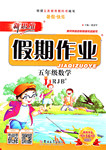题目内容
Do people travel to the other side of the globe until a one-year-old baby? Is it a smart idea? I wonder if I was crazy. I had various adventures—hut this trip would be different. This South American adventure would be a unique life experience of mine. I had given up many activities in order to please a little person, because Anders’ needs had to come first. At 30 years old, it was a difficult change for me, and I was occasionally annoyed when I realized that my son had taken away so many things from me.
Argentina is a long way from my home. It was even longer when I was on the plane and sharing a seal with such an active little boy, but Anders and I made it without angering any other passengers or getting any dirty looks. And we look a rest on a regular schedule.
I wanted to do some hikes in Argentina and drive ten hours to the coast to see penguins. However, when I thought about my travel partner, I gave up these ideas. Instead, we just hung out by lakes, picking up stones and throwing them in the water. I took short hikes, running with Anders in die backpack, knowing that I had two hours before his tolerance gave out and the complaining started.
I discovered that traveling with a baby opens new doors that aren’t there for a solo traveler or couple. Anders helped me to slow down and look at the landscape closely. I got to see Argentina through someone else’s eyes. The traveling wasn’t as fast-paced as it would have been if I had been alone, but the details were amazing. Now I just have to absorb that insight into our life back home.
1.What was the change for the author when she turned 30?
A. That she abandoned many activities to look after her son.
B. That she longed to take adventures without her son.
C. That her son took away everything from her.
D. That her son occasionally annoyed her.
2.What do we know about the author and her baby during the flight?
A. They made a travel schedule.
B. They shared a seat with each other.
C. They enjoyed a very pleasant flight.
D. They couldn’t tolerate other passengers.
3.Why did the author give up her ideas mentioned in the fourth paragraph?
A. Her baby didn’t like them.
B. Her baby’s tolerance gave out.
C. She desired more interesting activities.
D. She wanted to have her baby share the activities.
4.What does the author suggest travelers do in the end?
A. Travel with a baby.
B. Spend more time accompanying children.
C. Enjoy the details in their life.
D. Appreciate the scenery through a baby’s eyes.
 新思维假期作业寒假吉林大学出版社系列答案
新思维假期作业寒假吉林大学出版社系列答案| A. | has ever | B. | had ever | C. | had had | D. | has |


 rent side of the
rent side of the